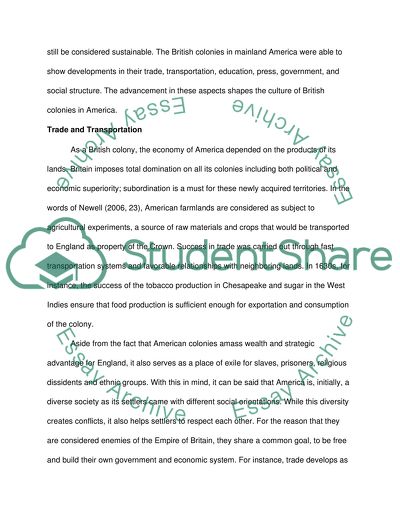Cite this document
(“Progressive Thinking and Mismanagement in the Development of America Essay”, n.d.)
Retrieved de https://studentshare.org/history/1392869-progressive-thinking-and-mismanagement-in-the-development-of-america-before-the-american-revolution
Retrieved de https://studentshare.org/history/1392869-progressive-thinking-and-mismanagement-in-the-development-of-america-before-the-american-revolution
(Progressive Thinking and Mismanagement in the Development of America Essay)
https://studentshare.org/history/1392869-progressive-thinking-and-mismanagement-in-the-development-of-america-before-the-american-revolution.
https://studentshare.org/history/1392869-progressive-thinking-and-mismanagement-in-the-development-of-america-before-the-american-revolution.
“Progressive Thinking and Mismanagement in the Development of America Essay”, n.d. https://studentshare.org/history/1392869-progressive-thinking-and-mismanagement-in-the-development-of-america-before-the-american-revolution.


